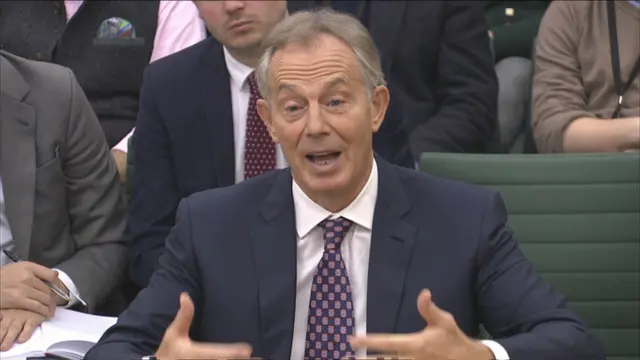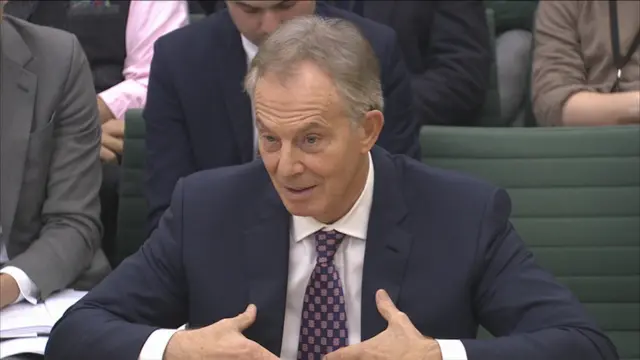Blair: I am answering questionpublished at 11:30
The first real flashpoint of the hearing comes as Tory MP Baron suggests that Tony Blair is trying to avoid a question on whether David Cameron and other leaders exceeded the UN's authority through their intervention in Libya. There is a frisson of excitement in the committee room as Mr Blair replies.
Quote MessageI am answering but I am answering the best I can. I am very mindful of the fact that having been prime minister for 10 years and taken a lot of the decisions which are the subject of a lot of criticism, I know how difficult it is so I am not going to get into position of criticising my successor. I totally understand the reasons they did what they did.

